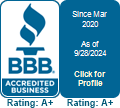
Common Money Management Mistakes to Avoid
Earning well is not enough in today’s hectic world; you also must know how to manage your finances. It becomes especially crucial when you have too many options for how to spend your money—for example, by living a luxury lifestyle or making one-click purchases online.
Let us examine a few typical money management errors people make due to limited awareness. Avoiding these mistakes can help you reach your long time financial goals.
1. Frivolous Spending
Most individuals do not just go out and buy something expensive on a whim. They do not wake up one morning and decide, “I’m going to buy that boat!” However, they spend a small amount of money each day on items they do not need, like that double-mocha coffee or eating out when they do not feel like cooking. If you ask yourself, “Is this a want or a need” before making any purchases, you will quickly see how much money you are wasting on items you do not need.
For example, spending only $25 a week on eating out costs you $1,300 a year, which you can utilize to cover numerous additional credit card, auto, or other payments.
Therefore, occasionally purchasing “wants” is OK, but this should not be your regular strategy if you desire to reduce your expenditure. Remember that every dollar counts.
2. Not Having An Emergency Fund
If the Coronavirus pandemic has taught us anything about finances, it is the value of an emergency fund to draw on in case of unforeseeable catastrophes.
You can never be sure of your job security and never know when an unforeseen financial issue like a medical expense or a vehicle repair may crop up. You will have to employ pricey methods of financing these expenses when you do not have any additional money saved up. It may involve taking out a cash advance, depending on payday loans, or accruing high-interest credit card debt, which can ruin your finances.
You can start small if you are beginning to accumulate emergency savings. Even saving a small sum, like $100 a month, will result in $1,200 at the end of the year. Many financial experts advise starting your emergency fund using cash windfalls, such as a stimulus check or tax returns.
3. Delaying the Start of Retirement Savings.
The best time to begin retirement savings is right now. Whether you plan to retire in 30 years or ten, you must develop the practice of saving now. Besides contributing to retirement savings like a Roth IRA or 401(k), you should make at least the maximum match offered by your employer if it offers to match your 401(k) contributions. Otherwise, you are wasting free money.
In terms of how much money you can save, one approach to comprehending rule 72’s power can be beneficial. The rule claims that you may calculate how long it will take for your money to double in value by dividing 72 by the compound interest rate. You may watch your money grow fast if you save with awareness and consistency. This straightforward mathematical formula may make the difference between enjoying financial stability and eventually experiencing insecurity.
4. Spending More Than You Earn
What is the most common money management error? Maths is everything. Spending less than you earn is necessary to achieve financial security.
You must be aware of how much money you make and how much money you spend to make this work. Do not panic; careful budgeting is not required. The 50/30/20 budget is an excellent place to start:
- Devote 50% of your income to your Must-haves, which include housing, healthcare, groceries, utilities, minimum debt payments, transportation, and food.
- Spend 30% of your earnings on Wants, which include clothes or accessories, tickets to sporting events, vacations or travel, the latest electronic gadget, and ultra-high-speed Internet.
- Set aside the remaining 20% of your income for savings/debts, which include setting up an emergency fund, contributing to retirement accounts like a 401(k) and Roth IRA, and extra debt payments (beyond the minimum needed amount).
If your take-home salary is lower than your outgoing costs, you must assess your “wants” category. Go over the last several months of spending to identify possible unnecessary costs like eating out, shopping, or other forms of impulsive spending. You could also get a side job to augment your income.
5. Taking On Too Much Debt
High-level debt does not have to be the norm, yet they are for many people. It is just how it is— expensive mortgage payments, a new vehicle every five years, and several credit cards with hefty balances.
- Bigger does not always mean better when purchasing a home: Buying a bigger house than you need means larger mortgage payments, more expensive taxes, and increased costs of upkeep and utilities.
- Purchasing a new automobile without considering lightly used second-hand vehicles: A new one will lose up to 25% of its value the minute you drive it off the lot. There are several top-notch second-hand automobiles available covered by warranties.
- Using credit cards to pay for all minor and large purchases: While using them might be convenient, be careful not to overuse them by charging items you cannot pay back in a month or two. Furthermore, you must not use them to pay your bills. Otherwise, you will pile up a lot of debt very quickly.
6. Not Having Insurance
Good financial planning requires having the appropriate insurance, including medical, homeowners, auto, long-term care, life, and disability. Even while determining the types of insurance and the quantity of coverage you may need can be challenging, not having the correct mix of insurance can be fatal if faced with an unexpected expenditure.
Every year, it is a good idea to check your insurance coverage to see which policies you may or may not need in light of any significant life events you have encountered.
You can get your finances in order and start managing your money instead of the other way around by being aware of the most frequent mistakes people make with money management and taking the necessary precautions to prevent yourself from making them.


